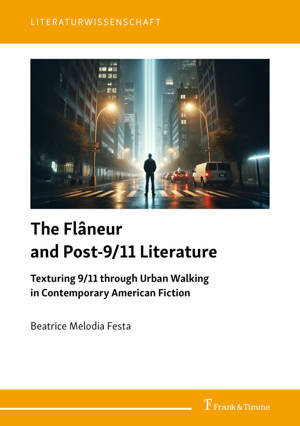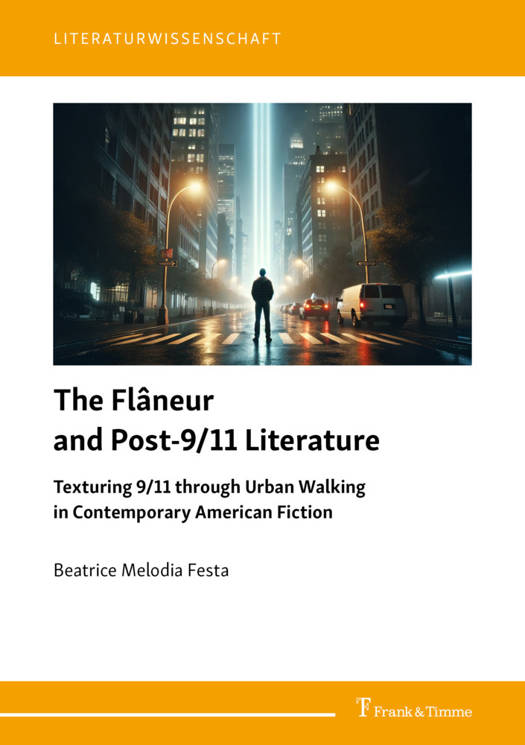
- Afhalen na 1 uur in een winkel met voorraad
- Gratis thuislevering in België vanaf € 30
- Ruim aanbod met 7 miljoen producten
- Afhalen na 1 uur in een winkel met voorraad
- Gratis thuislevering in België vanaf € 30
- Ruim aanbod met 7 miljoen producten
Zoeken
The Flâneur and Post-9/11 Literature
Texturing 9/11 and Urban Walking in Contemporary American Fiction. DE
Beatrice Melodia Festa
€ 35,45
+ 70 punten
Omschrijving
In the wake of September 11, 2001, New York City and the collective consciousness were profoundly transformed. The Flâneur and Post-9/11 Literature explores how contemporary American fiction represents this altered landscape through characters whose wanderings recall the flâneur. While not flâneurs in the nineteenth-century sense, these protagonists use urban wandering as a narrative strategy to negotiate trauma, memory, and the reconfiguration of urban space. Focusing on novels by Teju Cole, Colson Whitehead, Jonathan Safran Foer, Don DeLillo, and Amy Waldman, the book shows how urban wandering-a recurrent motif in post-9/11 fiction-becomes a morally, emotionally, and politically charged practice. Linking flânerie to the spatial and symbolic transformations of New York City, the study examines how streets and the haunting voids of Ground Zero structure narrative and shape collective memory. Tracing intersections of bodies, streets, and stories, the book illuminates how literature bears witness to trauma and reshapes urban experience.
Specificaties
Betrokkenen
- Auteur(s):
- Uitgeverij:
Inhoud
- Aantal bladzijden:
- 180
- Taal:
- Engels
- Reeks:
- Reeksnummer:
- nr. 119
Eigenschappen
- Productcode (EAN):
- 9783732910441
- Uitvoering:
- Paperback
- Afmetingen:
- 148 mm x 210 mm

Alleen bij Standaard Boekhandel
+ 70 punten op je klantenkaart van Standaard Boekhandel
Beoordelingen
We publiceren alleen reviews die voldoen aan de voorwaarden voor reviews. Bekijk onze voorwaarden voor reviews.








